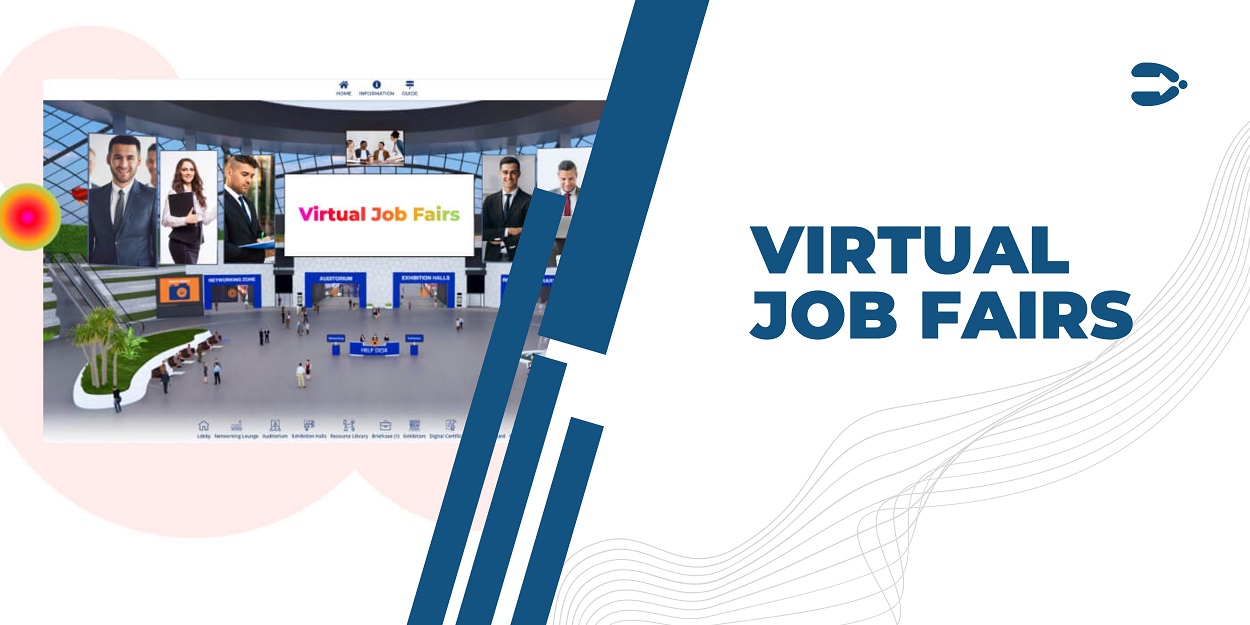In the ever-evolving landscape of recruitment, the virtual job fair has emerged as a powerful tool, especially in the pursuit of top-notch marketing talent. This article delves into the art of hosting a virtual job fair, providing insights and strategies to not only navigate this digital trend but to also successfully attract marketing professionals who can elevate your team.
The Rise of Virtual Job Fairs
Hosting virtual job fairs has become a cornerstone in modern recruitment efforts, eliminating geographical barriers and offering a streamlined approach to connecting employers with potential candidates. In the realm of marketing, where creativity and innovation are key, leveraging virtual platforms can open doors to a diverse pool of talent from various locations.
Understanding the Marketing Talent Landscape:
Before diving into hosting a virtual job fair, it’s crucial to understand the intricacies of the marketing talent landscape. Research indicates that top marketing professionals seek environments that foster creativity, provide opportunities for professional growth, and align with their values. Therefore, tailoring your virtual career fair to showcase these aspects can significantly enhance its appeal.
Things to Consider in Your Virtual Career Fairs
Here are the things that you can consider to elevate your virtual job fair and bring out the best talent. So let’s explore .
Crafting an Engaging Virtual Experience:
The success of a virtual job fair lies in creating an engaging and immersive experience. Utilize advanced virtual fair platforms that offer features like interactive virtual booths, live sessions, and seamless networking opportunities. These elements simulate the feel of an in-person event and keep participants actively involved.
Showcasing Company Culture and Values:
Marketing professionals often prioritize companies with a strong and positive culture. Use the virtual career fair as a platform to showcase your company’s culture and values. Incorporate virtual tours, employee testimonials, and engaging multimedia content to give candidates a genuine sense of what it’s like to be a part of your team.
Strategic Employer Branding:
Invest time in strategic employer branding to stand out in the competitive job market. Highlight your company’s achievements, accolades, and unique selling points. This not only attracts top talent but also establishes your organization as a desirable workplace within the marketing community.
Personalized Recruitment Approach:
Avoid the one-size-fits-all approach. Marketing professionals appreciate personalized interactions. Tailor your communication to resonate with the unique skill sets and aspirations of each candidate. Provide insights into the exciting projects they might work on, emphasizing the impact they can make within your organization.
Utilizing Social Media and Online Platforms:
Social media is a powerful tool for reaching a wide audience. Leverage platforms like LinkedIn, Twitter, and industry-specific forums to promote your online job fair. Engage with potential candidates, share behind-the-scenes glimpses, and encourage discussions to build anticipation and interest.
Interactive Sessions and Workshops:
Incorporate interactive sessions and workshops led by industry experts during your virtual career fair. This not only adds value to participants but also positions your company as a thought leader in the marketing domain. Consider addressing industry trends, sharing success stories, and providing valuable insights that showcase your company’s expertise.
Networking Opportunities for Candidates:
Facilitate networking opportunities for candidates to connect with current employees, leadership, and fellow job seekers. Virtual one-on-one sessions, group discussions, and Q&A sessions create a sense of community, allowing candidates to envision their place within your organization.
Post-Event Engagement:
The end of the virtual career fair doesn’t mark the end of engagement. Implement a robust post-event strategy, including personalized follow-up emails, additional resources about your company, and invitations to join exclusive webinars or discussion forums. This ongoing engagement reinforces your commitment to fostering a lasting relationship with potential candidates.
Measuring Success and Continuous Improvement:
Post-event analytics play a crucial role in measuring the success of your virtual job fair. Analyze participant engagement, conversion rates, and feedback to identify strengths and areas for improvement. Use these insights to continuously refine your approach for future virtual recruitment endeavours.
Conclusion
By the end of this article, we know that mastering the art of hosting a virtual job fair to attract marketing talent requires a thoughtful and strategic approach. By understanding the unique preferences of marketing professionals, crafting an engaging experience, and showcasing your company’s culture, you can create a virtual recruitment event that not only attracts top talent but also positions your organization as a leader in the competitive marketing landscape. Embrace the digital shift, and watch as your team flourishes with the infusion of innovative and skilled marketing professionals.
Frequently Asked Questions
What is a virtual job fair?
A virtual job fair is an online event where employers and job seekers come together in a digital environment. It provides a platform for networking, recruitment, and information exchange without the need for physical presence.
What is a virtual job interview?
A virtual job interview is a job interview conducted remotely using video conferencing tools or other online platforms. It allows employers to assess and interview candidates without the need for face-to-face interactions.
Why is virtual hiring important?
Virtual hiring is important as it offers flexibility, eliminates geographical barriers, and streamlines the recruitment process. It allows companies to access a broader talent pool and adapt to the changing dynamics of the modern work environment.
What are the benefits of a virtual job?
The benefits of a virtual job include flexibility in work location, reduced commuting time, access to a global job market, and the potential for a better work-life balance. Virtual jobs often offer increased autonomy and the ability to create a personalized and efficient work environment.

